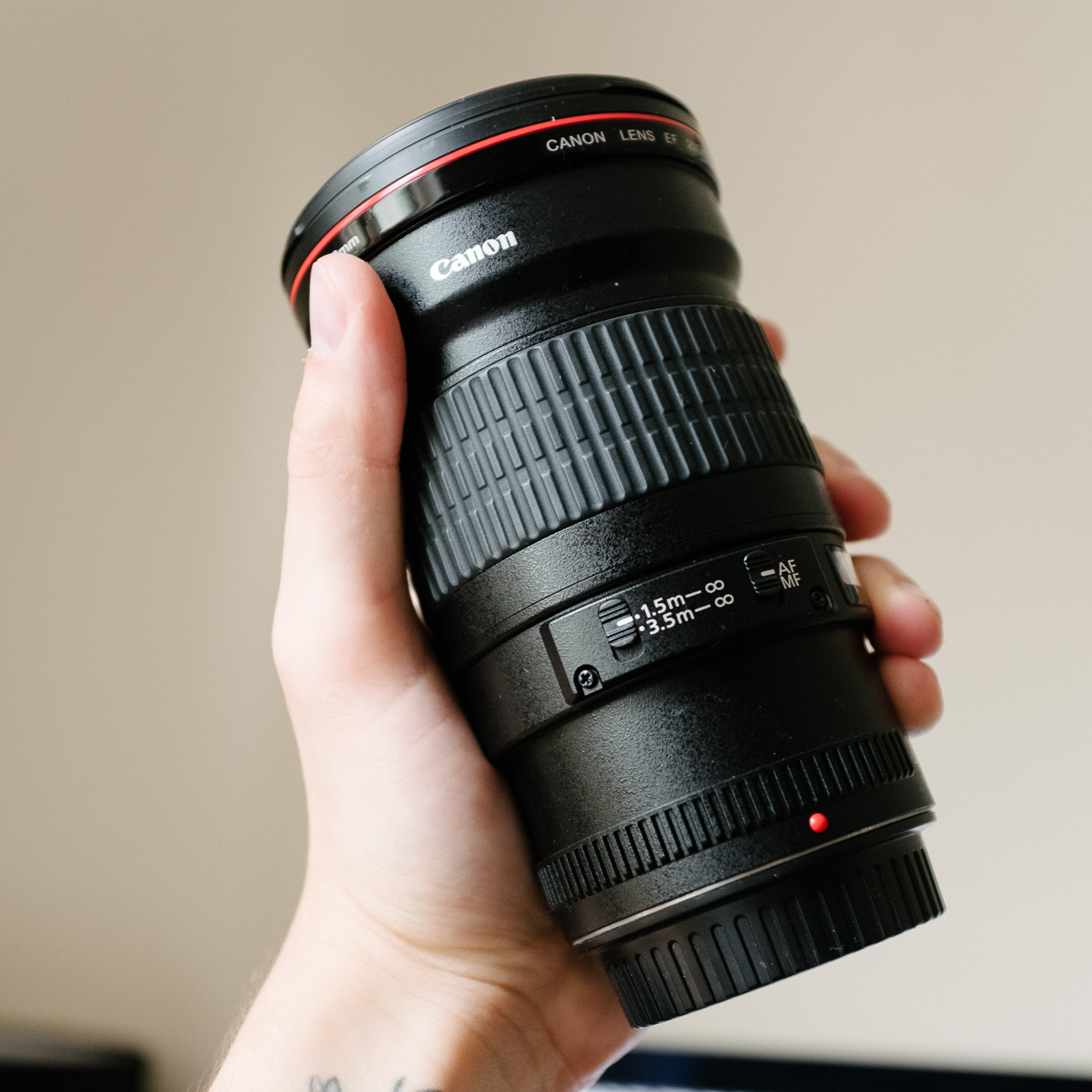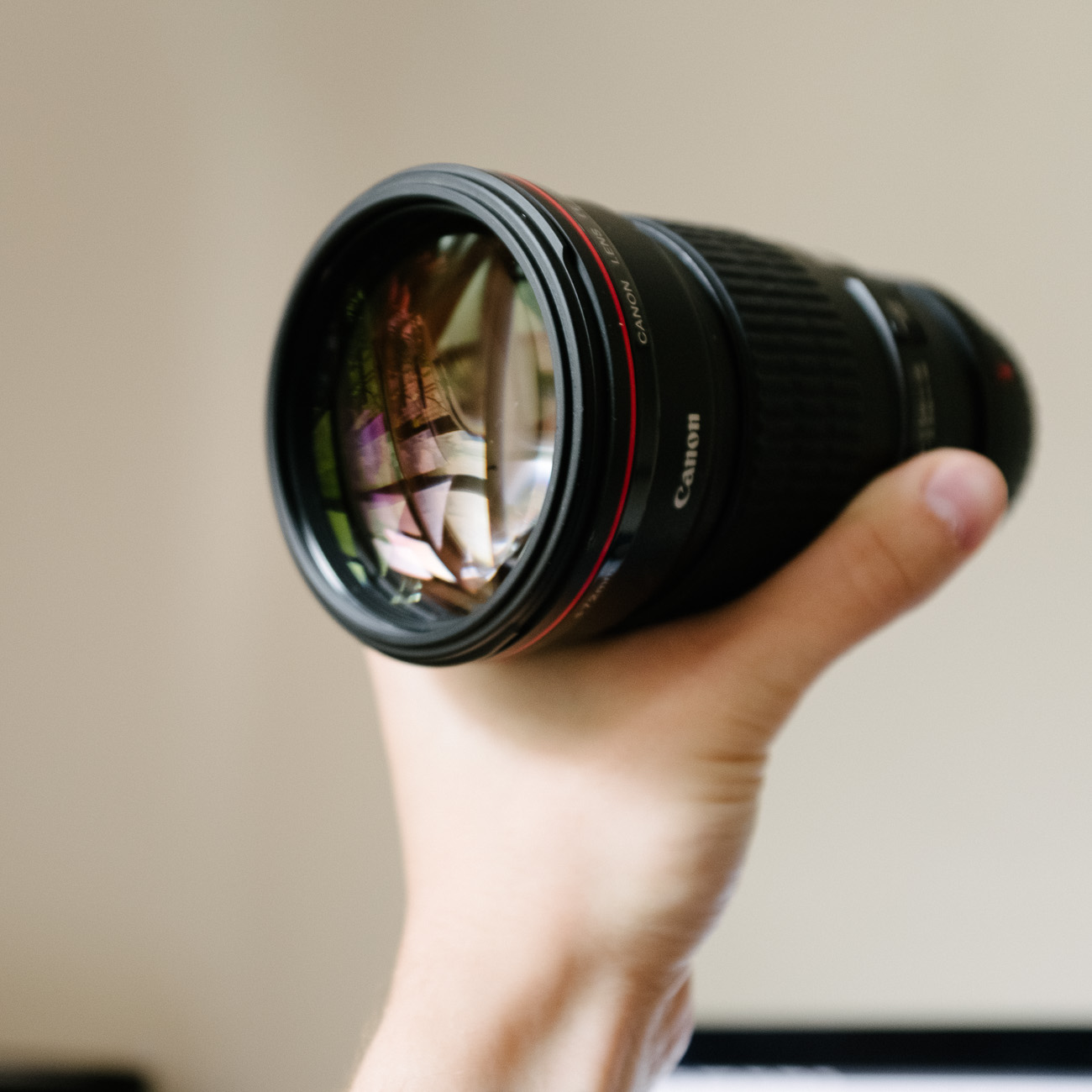Canon 200mm f/2.8 L Lens Review: Not For Everybody, But Perfect for Some
This long, fast telephoto prime is sometimes tricky to use– but the price is right, and the image quality is even better.
Tech Specs
Focal length: 200mm
Minimum aperture: 2.8
Size: 3.x27 x 5.35 inches
Weight: 28.06 oz
Minimum focusing distance: 59.06"
Weather sealed: No
Image stabilization: No
AF motor: Ring USM
Full Time Manual Focus: Yes
Shooting with the Canon 200mm f/2.8 L
On Shark & Palm, I tend to review older glass and affordable gear because I don't feel the need to chase the 'latest and greatest'. I'm on a mission to prove that outdated, cheaper equipment is just as usable – even professionally – as modern offerings.
The reason you're interested in this lens is likely because you don't want to shell out for the Canon 70-200mm f/2.8. I can't blame you – I don't either!
Here's the good news: optically, the Canon 200mm f/2.8 L is a triumph that holds up perfectly well in 2018. But you should know that a 200mm prime is not for the faint of heart.
By choosing this lens over the (expensive but legendary) Canon 70-200mm f/2.8, composition becomes a lot trickier. With such a dramatic telephoto, there's a real learning curve when it comes to using this lens and knowing intuitively where you need to be to nail your shot.
But by putting in that practice, you'll not only save a thousand dollars – you'll also get the drool-worthy image quality that the L series line up is known for.
Bokeh on the Canon 200mm f/2.8 L
A telephoto of this length at f/2.8 – particularly on a full frame sensor – has such a razor thin depth of field and so much compression thatthe bokeh can be almost overwhelming. For most of us, that's a damn good thing.
The quality of the bokeh is smooth and obliviated, which offers lots of cool opportunities for compositionally isolating your subjects even in busy areas.
Autofocus on the Canon 200mm f/2.8 L
This is a lens typically used for sport and wildlife photography, meaning that autofocus performance is make or break.
Canon knew this when developing this lens, so I'm happy to report that the autofocus speed and accuracy are really great. Maybe not down-to-the-mililsecond quick as some of the latest offerings, but I never had the sensation that the autofocus was lagging. Granted, I didn't shoot any sports with this lens, so your mileage may vary – but the consensus on the autofocus with other reviewers is that this lens is totally up to task.
It really is a testament to Canon that the autofocus performs as well as it does. Factoring in physics, it's astonishing that this lens can so quickly lock on to intended subject without regularly hunting or back-focusing.
That said, I did run in to one problem: when trying to focus on a small blade of grass in the foreground, the lens consistently missed and focused on the background. This is expected, but the problem was that reeling the focus back in to the fore/mid-ground invited a second-long delay that could have been a deal-breaker were I shooting something quicker.
Sharpness on the Canon 200mm f/2.8 L
In controlled environments, this lens is as sharp as they come. Wide open at f/2.8, the corner to corner sharpness is a marvel.
But the lack of image stabilization on this lens really hurts. The aperture is generally bright enough to compensate, but dipping below 1/320 on this lens will quickly introduce hand shake (you can read more about that here).
It's not a knock against the sharpness or image quality of the lens, but it does make it a bit less versatile – and if you have to boost your ISO to 3200+ in darker environments to capture the action without hand-shake, the sharpness will start to decline.
Image Quality on the Canon 200mm f/2.8 L
Here's the big win of this lens: it's beautiful.
Crisp details with dreamy rendering that allow the sheer impact of 200mm f/2.8 on a full frame sensor to really shine.
Now, it's the nature of long telephoto lenses to accumulate haze when shooting long distances in foggy weather, so that shouldn't be counted against this lens. In fact, the innate contrast does a great job at warding off that 'flat' look that some other teles fall victim to.
There's also a bit of chromatic abberation in areas of high contrast, but nothing too dramatic – it's a one-click fix in Lightroom.
Should You Buy the Canon 200mm f/2.8 L
If you're researching lenses at this focal length, you already know whether or not you need this lens. For me, it's not exactly a must-have, like the 100mm f/2.8 or the 50mm f/1.2, but on a technical level, this lens exceeds all expectations.
Not to mention, there are no comparable alternatives. Canon really knocked it out of the park with this one, and nobody has succeeded in topping it. If you need a 200mm telephoto prime, this is the one.
But if you're interested in a telephoto lens but don't know if you need such a dramatic focal length, my highest recommendation goes to the versatile Canon 100mm f/2.8.















